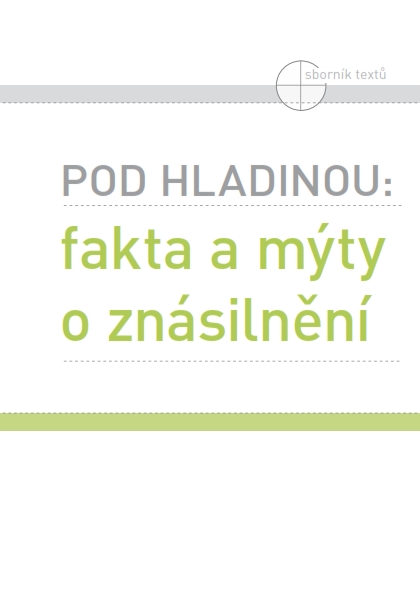
We kindly inform you that, as long as the subject affiliation of our 300.000+ articles is in progress, you might get unsufficient or no results on your third level or second level search. In this case, please broaden your search criteria.

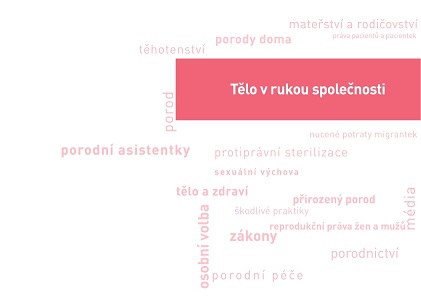



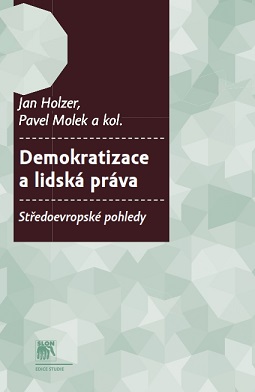
Benjamin Constant kdysi ve slavné přednášce rozlišil dva druhy svobod: na jedné straně stojí svoboda starých spočívající „v kolektivním, a přitom přímém výkonu určitých částí suverénní moci, ve veřejném projednávání války a míru, v uzavírání spojeneckých smluv s cizinci, v hlasování o zákonech, ve vyhlašování rozsudků, ve zkoumání činnosti úředníků, v odhalování jejich činnosti před celým lidem, v možnosti jejich obžaloby, odsouzení či zproštění viny“ [Constant 2006: 79 an.]. Na druhé straně je pak svoboda moderních, jejíž podstatou je poklidné užívání individuální nezávislosti. V antice byl jedinec téměř vždy suverénem ve veřejných záležitostech, zároveň byl však otrokem v soukromých vztazích. Zatímco pro staré bylo soukromé jednání podřízeno přísnému dohledu, prvotní potřebou moderních národů je nezávislost jednotlivce, a proto po nich nelze žádat, aby tuto nezávislost obětovaly politické svobodě [Constant 2006: 90].
More...
Although the feminist movement should not be restricted solely to the struggle for women’s suffrage (passive and active suffrage, in other words, the right to vote and stand in the elections), acquisition of the status of political entity, regardless of all theoretical discrepancies between different forms of feminism, remains its lasting feature. The first argumentation of necessity of women’s involvement in political sphere was carved out within the framework of the liberal political philosophy on the foundations of its principles of equality of all human beings and was thus formulated as a call for participation of women in political life, on an equal footing with men. However, the actual equality has not been accomplished after women won these rights, and the anticipated societal changes failed to materialise.
More...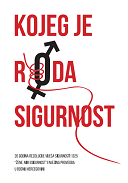
Iako je pogrešno feministički pokret svesti isključivo na borbu žena za osvajanje punog prava glasa (i pasivnog i aktivnog prava glasa, odnosno i prava da bira i da bude birana), sticanje statusa političkog subjekta – bez obzira na sve teorijske diskrepancije feminizama – njegovo je kontinuirano obilježje. Prva argumentacija za nužnost uključivanja žena u političku sferu isklesana je u okviru liberalne političke filozofije i na temeljima njenih postulata o jednakopravnosti svih ljudskih bića te formulisana kao zahtjev da žene ravnopravno s muškarcima učestvuju u političkom životu. Ipak, ova ravnopravnost generalno nije postignuta nakon osvajanja prava niti su se desile očekivane društvene promjene.
More...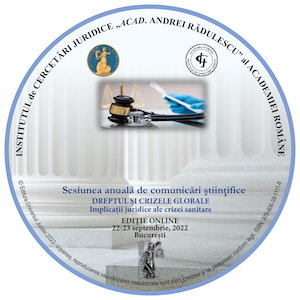
We live in an era of big changes and large-scale crises. Against the background of globalization, digitalization and hyper-pragmatization of existence, civilization is undergoing major transformations and evolutions, under such concepts as: ‘post-truth’, ‘post-culture’, ‘post-religion’, ‘post-humanism’, etc. In a broad sense, the notion of ‘post-culture’ can also define the decline of culture in the conditions of the world’s prevalent orientation towards material values and consumerism, under the pressure of an exacerbated pragmatism. At the same time, we are going through a time of big crises, successive or simultaneous: regional conflicts, increasing tensions among the great powers, the COVID-19 pandemic, the war in Ukraine, new epidemics threatening humanity, growing economic crises, etc. The pandemic drastically limited the access to culture, events, exhibitions, shows, archeological sites, etc. for two years. Wars endanger cultural goods, cause their degradation or destruction, also providing a framework for illicit operations. Economic crises, paroxysmal increases in costs overshadow the field of culture in terms of priority and importance. All these processes and global evolutions have an impact in the Romanian space as well, affecting culture and the national cultural heritage. Culture, deeply linked to education, is the means of building the individual spiritually, intellectually and morally, and the cultural heritage remains the background of a civilization’s spirituality, the framework of a people’s identity values in the concert of European and global diversity. Beyond crises and pandemics, culture and the legal protection of cultural heritage must remain a priority for every state. In the Romanian legal system, access to culture is a fundamental right enshrined in the Constitution.
More...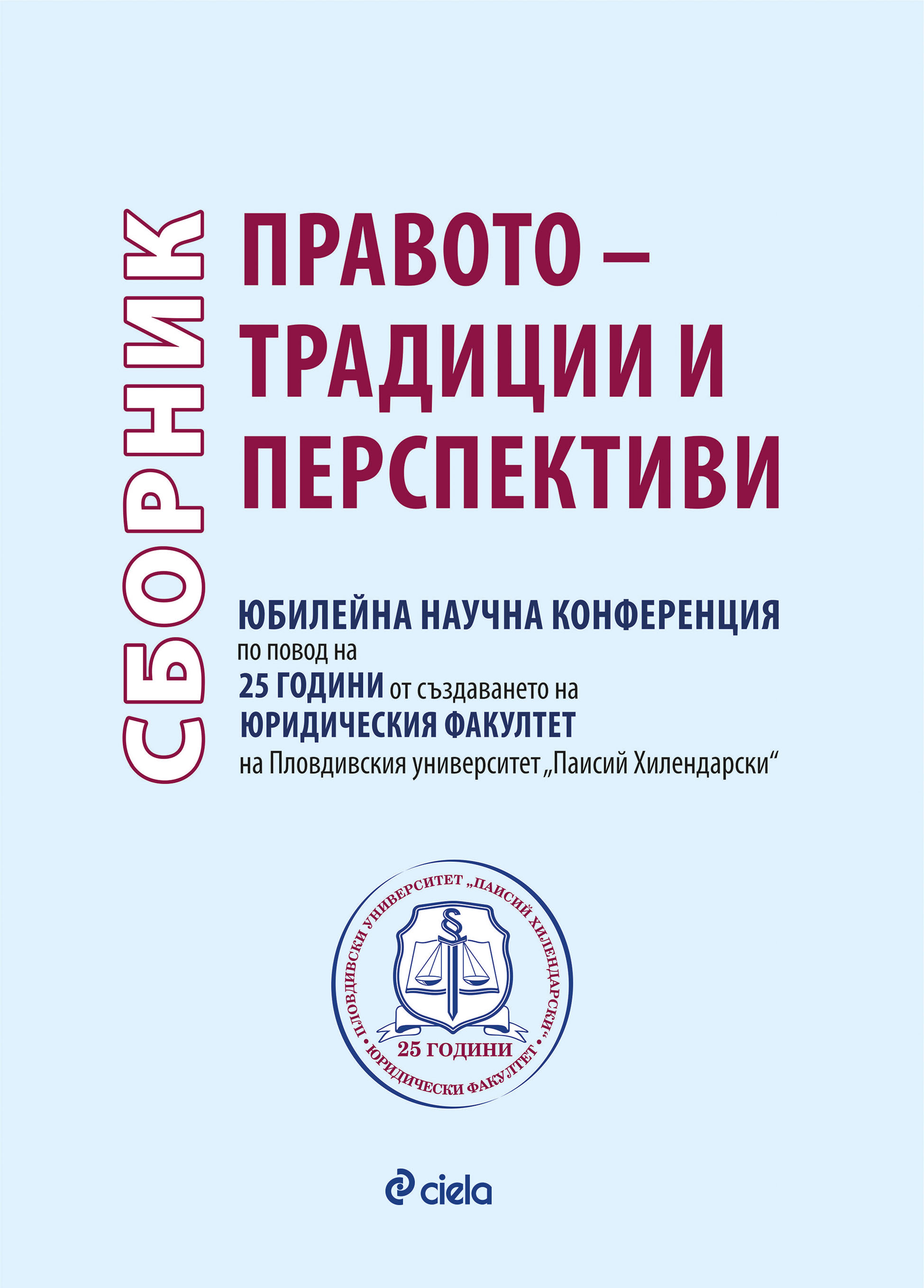
One of the components of the United Europe idea, according to its founders, is culture. The EU views the goal of maintaining cultural diversity as complementary to the goal of highlighting the common cultural legacy. Both of these objectives are more likely to be attained through intercultural conversation and the free movement and access to all cultures. Starting from diversity, the goal is to achieve a unity that does not, however, harm the original diversity, which is preserved. The European Union's motto, "United in Diversity," is a wonderful synthesis of this strategy.
More...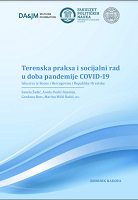
U skladu sa Porodičnim zakonom Federacije Bosne i Hercegovine15 supružnici koji žele pokrenuti postupak razvoda braka, a imaju zajedničku malodobnu djecu, dužni su obaviti radnju posredovanja. Posredovanje je predradnja koju je zakonodavac propisao sa ciljem da supružnici prije postupka razvoda braka razmisle o svom zahtjevu i pred stručnim osobama iznesu razloge koji su uzrokovali narušene partnerske odnose. Namjera je da se u postupku posredovanja nastoje sanirati poremećeni bračni odnosi, a kada to nije moguće, potrebno je da se supružnici dogovore o pitanjima brige i zaštite zajedničke djece, a što bi se trebao poštovati do okončanja postupka razvoda braka i donošenja sudske pravomoćne presude. Postupak posredovanja mogu obavljati centri za socijalni rad, Porodično savjetovalište Kantona Sarajevo i fizička lica koja je licenciralo Federalno ministarstvo za rad i socijalnu politiku.
More...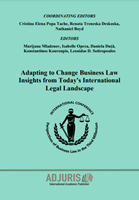
Tax evasion is an economic-social phenomenon of great scope and interest, located at the crossroads between the economic and legal fields, which many states face and which has become a topic debated more and more often in practice, considering the extension of this phenomenon to all types of companies. Historically, tax evasion has existed since the first tax regulations. To understand this phenomenon, it is necessary to know its causes. Thus, among the most controversial causes of tax evasion are: the way tax legislation is designed and applied, the low level of tax education, the lack of effective controls, the lack of staff training, etc.
More...
The Directive (EU) 2019/1023 requires Member States to ensure that insolvent entrepreneurs have access to at least one procedure that can lead to a full discharge of debts in a period no longer than three years. The deadline for transposition of the Directive 2019/1023 expired on 17 July 2021. The payment schedule according to the Czech Insolvency Act generally lasts five years. It is shortened to three years for some vulnerable groups of debtors, such as disabled or elderly people, and also for those who repaid 60% of debts within the first three years. This paper shall examine the consequences of not meeting the deadline for transposition, and whether Directive 2019/1023 could have a direct effect, based on the judgments of the Court of Justice of the EU (CJEU). The approach taken by the government’s proposal for an amendment to the Insolvency Act which is currently pending in the legislative process shall also be addressed in this paper.
More...
The proliferation of social networks brings entrepreneurs (competitors) more ways of interaction with consumers. Marketing strategies of social networks are coming to the fore, developing new methods of influence(r) marketing. In the article, we deal with the issue of regulation of this phenomenon, questions of competition law and (non)transparent marketing practices of influencers, potentially harmful to consumers. The aim of this article is to demonstrate correlation between influencer’s practices and unfair competition in the legislation of Slovak Republic by using common scientific methods - analysis and synthesis.
More...
The UN 2030 Agenda and the Political guidelines with six priorities of the current EU Commission, including the European Green Deal, vigorously and systematically advance sustainability, particularly its environmental pillar. The EU strategies, policies and law have engaged in promoting a genuine corporate social responsibility and the reporting about it and in fighting against greenwashing. After a sectorial regulation (Sustainable Finance Disclosures Regulation in 2018), a general regulation came to standardize the information about environmentally sustainable activities (the Taxonomy Regulation in 2019). Considering the dramatic expansion of the pool of subjects of the non-financial reporting duty, European businesses need to consider their social responsibility pursuant to criteria and objectives of environmentally sustainable economic activities set forth by the Taxonomy Regulation. Consequently, the interpretation and application of these criteria and objectives is not only challenging but also important on theoretical as well as practical levels. The goal of this paper is to contribute to their deeper conceptual understanding (i) by identifying them, (ii) by exploring them and their roots, in the context and while considering mischief, purposive and teleological rules, and (iii) by engaging with a critical and comparative juxtaposition. This reveals selective preferences and trends which are to be reflected on while balancing the six priorities of the European Commission for 2019-2024.
More...
From the mid-2010s, strategic autonomy appeared in the political and economic narrative of several EU policies. EU industrial policy is also linked to the capacity of the EU to improve its competitiveness, invest in human capital, and R&D, and address market failures. On the other hand, EU State aid rules have often been perceived as too stringent on Member States' competence to support national industries. The changing geopolitical and economic environment and later the COVID-19 triggered a more assertive EU to defend its market against third-country competitors and to tackle the vulnerability of sectors dependent on supply chains. Consequentially, the implementation of projects of common European interest has been accelerated. The paper investigates Article 107(3) Treaty on the Functioning of the EU (TFEU) as a broad mandate to contribute to the strategic autonomy of the EU, which will reveal that the category of important projects of common European interest (IPCEI) is a tool to authorise pan-European R&D and industrial projects. These projects were steered by the Commission and the Member States together to achieve EU objectives, as set out in various EU policy documents (e.g. European Green Deal). We have applied desk research by analysing the relevant policy documents and Commission decisions to conduct our research. IPCEI, as a broad undefined TFEU exception, is, in our view, apt to accommodate diverse EU policy goals.
More...
Following the relatively comprehensive regulatory framework of the prudential regulation after the financial crisis and the banking crisis that hit the European Union in the past, the EU legislation has in recent years become more specific in setting rules in sub-fields such as non-performing loans. In particular, regulatory efforts have been being driven by the aim of developing the secondary market for non-performing loans on the one hand and harmonising the rules for the participants in that market and for trading on it on the other. One of the cornerstones of such regulation is the Directive (EU) 2021/2167 of the European Parliament and of the Council of 24 November 2021 on credit servicers and credit purchasers and amending Directives 2008/48/EC and 2014/17/EU. The article discusses the new EU regulatory framework for credit purchasers as one of the participants in the secondary market for non-performing loans. At first, the new EU regulatory provisions harmonising the rules applicable to credit purchasers are reviewed. Subsequently, the article compares the new EU regulatory scheme with the current Czech regulatory framework regulating the activities of credit purchasers and analyses the intended transposition of the EU provisions harmonising the conduct of business of credit purchasers into the Czech law. Finally, conclusions regarding the possible impact of such transposition are reached.
More...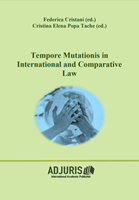
In the context of the COVID-19 pandemic, national economies around the world faced significant challenges in protecting and stimulating investment in a volatile economic environment. Through comparative research, we assess how countries have developed and implemented specific policies to support vulnerable sectors, strengthen existing investments and attract new sources of capital. To do so, we examine national investment screening strategies, analysing their eligibility criteria, objectives and relevance in the context of the pandemic. It also assesses how countries are responding to economic uncertainty and pandemic constraints, including rapidly adapting existing policies and promoting investment innovation. Finally, this research provides a comprehensive perspective on the various investment selection mechanisms adopted by states during COVID-19, providing valuable insights for policy decision-making and for developing more resilient and effective approaches to future global economic challenges.
More...
In a continuous dynamic of climate change affecting farmers and fish farmers and taking into account the current geopolitical context and its negative effects, new European financial solutions should be identified to mitigate or combat them. Research methods used: case study, sociological method and research hypothesis/theory. Ferenda law proposals: 1. amending the Charter of the United Nations (UN)3 ; 2. the creation of an EU financing line for the creation and modernization of niche companies with social and environmental components, with a strong argument for the creation and preservation of public goods; launching proposals for revising the Multiannual Financial Framework, with celerity; 3. New EU support measures through the Social Climate Fund for accidental cases; 4. innovative insurance system.
More...
International police cooperation with Bosnia and Herzegovina plays a key role in the fight against crime, i.e. drug trafficking, terrorism and other forms of transnational threats. Cooperation is achieved through various mechanisms, namely bilateral agreements, Europol, Interpol, and other regional and international organizations. Also, Bosnia and Herzegovina is a signatory to several international agreements on police cooperation, such as agreements with Europol and Interpol. The agreements enable partners from other countries to access information on criminal activities, then exchange intelligence data, as well as mutual support in criminal investigations and arrests. Interpol plays a significant role in maintaining security and international police cooperation in Bosnia and Herzegovina. For the subject of the research, the paper will cover various aspects such as the analysis regarding Interpol, i.e. how it contributes to maintaining the security of states and combating crime in Bosnia and Herzegovina, as well as the research of specific cases of cooperation, as well as the assessment of the effectiveness of their activities in the region, and all in terms of effective international police cooperation and suppression of transnational threats such as terrorism, organized crime and cybercrime.It is necessary to refer to various theoretical and empirical works, as well as relevant information, which contribute to the realization of successful police cooperation, as well as proposing new possible solutions. Also, it is necessary to analyze and cite scientific and professional works, reports of state authorities and agencies, and the media as sources of relevant information regarding this research. Certainly, it is necessary to draw a conclusion based on the content analysis, with the aim of determining the justification of the existing police cooperation between Bosnia and Herzegovina and Interpol, which relate to this topic.
More...